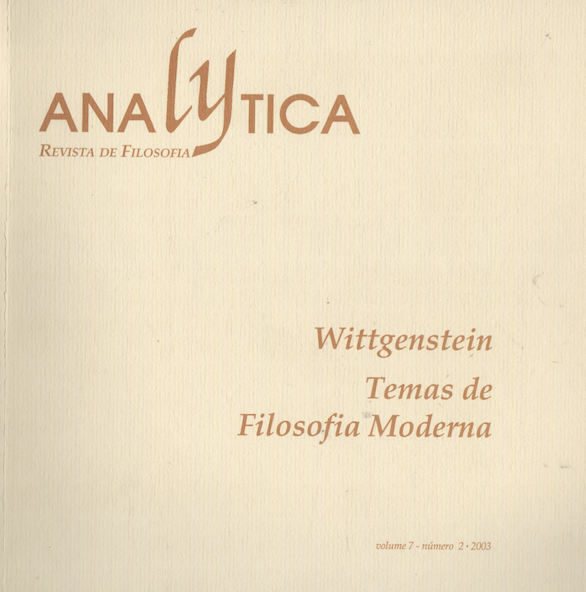Significação e retificação e o discurso público
Resumo
A linguagem cumpre para Locke duas funções principais: registrar nossos pensamentos e comunicá-los a outrem. Numerosos são os comentadores que consideram que a teoria lockeana da significação, dando conta da primeira função, erige obstáculos quase insuperáveis à explicação da segunda. Tenta-se aqui mostrar que, em Locke, sua fragilidade, longe de ser um obstáculo à comunicação lingüística, é a sua própria condição de possibilidade no seio de um espaço público onde cada locutor é responsável, diante de si mesmo e diante de outrem, pela inteligibilidade de seu discurso. Desta maneira, a teoria lockeana dos signos mantém uma estreita relação com sua teoria moral e política.
Abstract
According to Locke language accomplishes two main functions: to register our thoughts and to communicate them to somebody. There are many commentators who consider that Locke´s theory of meaning, when accomplishing the first function, erects obstacles to the explanation of the second that are almost unbeatable. Here one tries to show that, in Locke, his fragility, far from being an obstacle to the linguistic communication, it is its condition of possibility in the midst of a public space where each speaker is responsible, for himself and for somebody, by the intelligibility of his speech. Thus, Locke´s theory of signs keeps a narrow relation with his moral and political theory.
Downloads
Downloads
Publicado
Como Citar
Edição
Seção
Licença
Os autores que publicam nesta revista concordam com os seguintes termos:
- Os autores mantêm os direitos autorais e concedem à revista o direito de primeira publicação, com o trabalho simultaneamente licenciado sob a Licença Creative Commons Atribuição-SemDerivações 4.0 Internacional (CC BY-ND 4.0), que permite a redistribuição, comercial ou não comercial, desde que a obra original não seja modificada e que seja atribuído o crédito ao autor.
- Os autores têm autorização para assumir contratos adicionais separadamente para distribuição não-exclusiva da versão do trabalho publicada nesta revista (ex.: publicar em repositório institucional ou como capítulo de livro), com reconhecimento de autoria e publicação inicial nesta revista.
- Os autores têm permissão e são estimulados a publicar e distribuir seu trabalho online (ex.: em repositórios institucionais ou na sua página pessoal) a qualquer ponto antes ou durante o processo editorial, já que isso pode gerar alterações produtivas, bem como aumentar o impacto e a citação do trabalho publicado (Veja O Efeito do Acesso Livre).


